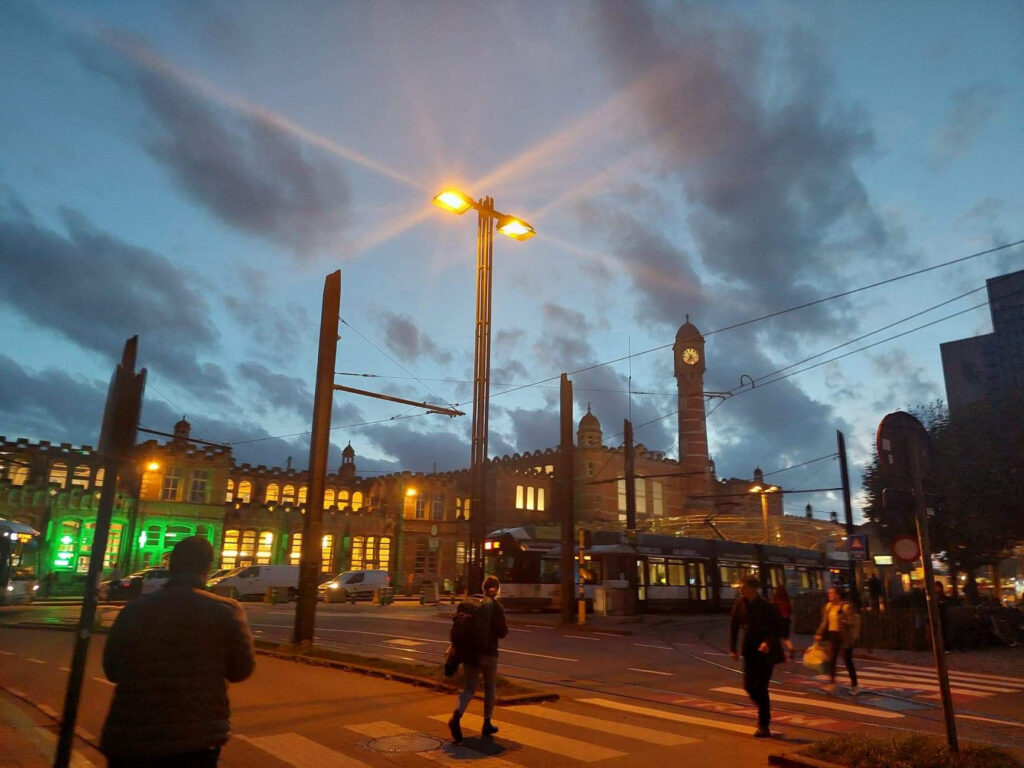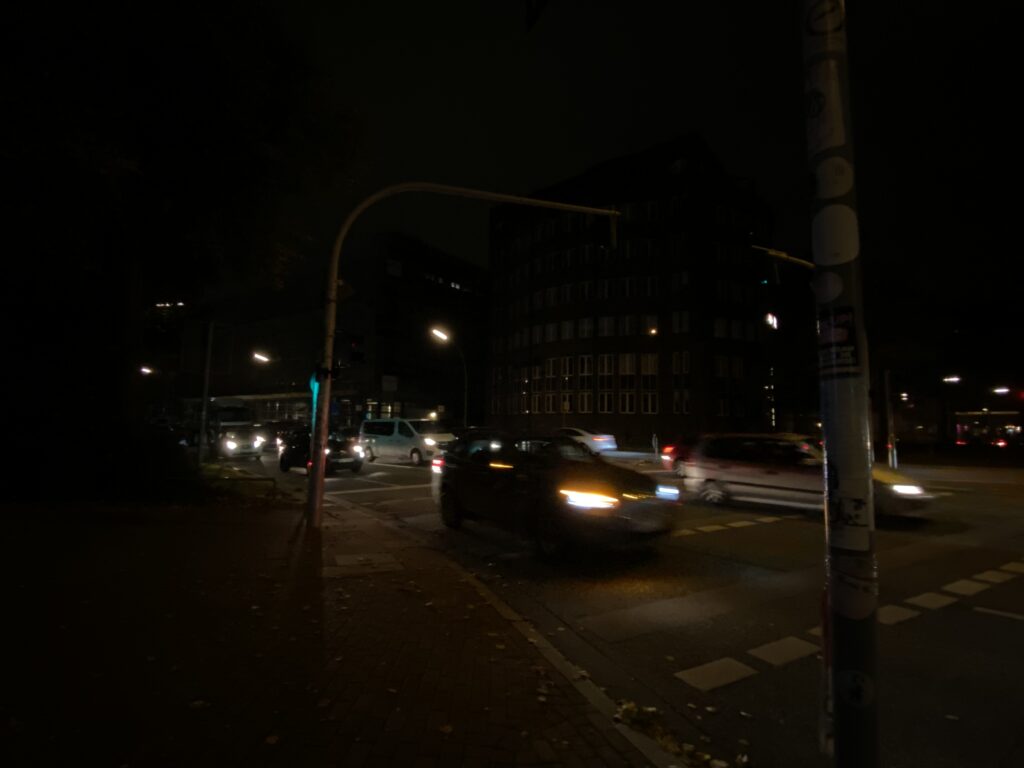Russian sanctions lead to high energy bills, worsening energy poverty in Europe
Cleo Ding & Gyeongju Hyun
November 2nd, 2022

BRUSSELS — One unfortunate coincidence after another, Europe is at a full-blown energy crisis in November while contending with economic shocks stemming from Russia’s war in Ukraine.
Europe has previously faced a shortfall in electricity generation capacity partially due to the severe drought over last summer, which led to a dire situation of an energy shortage — not only does hydro generation need water, thermal generation like coal and oil generation also needs water for cooling.
The energy difficulty was compounded by more than half of nuclear power plants in France being offline at the same time for maintenance due to corrosion problems.
Now, Russia’s geo-strategic cuts to its gas supplies to Europe have forced the EU to source its gas from elsewhere– namely buying gas on the international liquefied natural gas (LNG) market, which is much more expensive than gas shipped by pipelines from Russia.
With gas prices having gone through the roof due to dramatic increase in LNG gas demands, workers’ income fails to keep pace with the inflation rate and rising costs of living.
“This is something that we are afraid of. This is why we demand some flanking policies to make sure that not large numbers of workers fall under the poverty threshold,” said Klaus Heeger, Secretary General with European Confederation of Independent Trade Unions (CESI).
‘No new sanctions on the horizon’
“The sanctions policy is not a policy which is in place, it’s a moving target, it develops. We will continue with it until it becomes unbearable for Russia”, writes the EU High Representative for Foreign Affairs.
As a righteous response that had to be done in the face of the Ukraine war, The EU financial sanctions on Russia, such as freezing of its assets in European banks has indirectly triggered Russia’s retaliation in reducing its gas supplies to Europe.
Europe is currently at around 20 per cent of Russian gas flows now compared to the pre-war era.
Although gas has not been explicitly sanctioned so far, the EU is not likely to maintain a gas trading relationship with Russia in the foreseeable future.
Severe sanctions on Russia are yet to take force on buying Russian crude oil, which sets to take effect on December 5th.
But to what extent are these sanctions effective?
Throughout history, “sanctions [in general] very rarely work” in an international context, said Derek Beach, political science professor at Aarhus University.
Even if they do not have a strong effect, removing the sanctions will require large amounts of effort, said Beach.
“We’re kind of locked in a situation where we’re now trying to reduce our dependence on unrhymed gas and reduce our energy use in general,” said Beach. “But I don’t see any new sanctions on the horizon.”
What’s the EU’s approach to the energy crisis?
The 27 EU memberstates have different views and different diplomatic relationships, depending on their historical experience, geographical placement and the traditions of how to deal with the larger geopolitical issues.
This diversity has made the EU policy response a slower process with more legal steps and more careful thoughts before the policies can be implemented compared to domestic responses.
Secretary General with CESI Heeger said the EU responses could have been faster, but they’re still “impressive”.
In the EU energy market, there is a huge amount of flows across borders — meaning a unified response is essential. The European economy is so interconnected and interdependent that a national response simply won’t be sufficient.
Heeger thinks that a united approach, in terms of increasing purchasing powers, making the supply chains or securing energy supply, has the strongest effects in EU hands.
“I think we are on the right track, but I could not say whether this will be lasting.”
There is a decrease in expectations during the energy-related policymaking process in the EU from the original proposals by the Commission to the Council, said Antonin Chapelot, policy and advocacy advisor at The Coalition for Energy Savings, an advocacy organization providing ideas to policymakers about EU energy efficiency policies.
As the expectation is lowered, the council sometimes drains out important information in the EU’s decision-making process.
“It deprioritizes everything you can do on your system level, on your distribution losses and transmission losses,” Chapelot said. “It also doesn’t help the synergy with renewable adoption.”
Member states’ dependence on Russian energy imports
Memberstates in Europe don’t have the same capacities, particularly from a fiscal response. Some can borrow more than others, some have more economic power to act and borrow and intervene in the energy markets.
Russia cutting the supply chain has caused significant disruptions for the EU market considering how it has traditionally been governed– The EU energy market as an energy system has not been evenly distributed.
As a result, the Union fund should especially take” how it is distributed and used” into account, said Conall Heussaff, energy and climate policy Research Assistant at Bruegel think tank in Brussels.
“The various respective differences include each memberstate’s particular challenges and resources in the energy system at the EU level,” he said.
As an example, Germany has the most strength amid the crisis thanks to its economic model — which is built on manufacturing exports of high quality manufacturing, predicated on cheap energy shipped from Russia.

Due to rising energy prices, the high manufacturing price made German industry less competitive. Germany then used its economy to prop up its own industry, making it more competitive to other EU memberstates that can’t afford to support their industries in the same way.
Another example in Hungary whose safest source of energy is Russia and is one of the four Turkstream pipeline countries which delivers natural gas from Russia, energy is not much of a ‘crisis’.
The current aim of the Hungarian energy policy is not to get rid of Russian energy imports because it’s only feasible in a long term, said Zoltan Aguera, Spokesperson of the Permanent Representation of Hungary.
“What we need right now, in the short term, is peace,” said Aguera, adding that Hungary’s priority now is diversifying energy sources.
But it remains a fragile agreement – Hungary’s long-term goal, Aguera said, is to gain energy independence.
The supply of the Hungarian markets with Russian energy is Russian oil or gas, where 50 per cent of the natural gas for cooking and space heating are imported from Russia, according to a recent report conducted by International Energy Agency (IEA) on national reliance on Russian fossil fuel.
“Hungary must become as independent as possible in terms of energy supply,” said Minister Palkovics after the meeting of EU energy ministers in June.
Gergely Gulyás, Head of the Prime Minster’s Office of Hungary, said at a press conference this October that even if the country received not a single molecule of gas during this period, it still “has enough gas stored to last six months”, adding that Hungary has significant storage capacities and high storage levels, and it has also made significant gas purchases.
“The central and eastern Europeans were really betting on gas as purchasing technology for the next few years, they are changing their mind for obvious reasons– because they received the gas mainly from Russia,” said Niels Schuster, Directorate-General for Climate Action with the EU parliament.
Although gas and electricity are in spotlight for now, “coal, however, will be the biggest uncertainty” and the decisive factor in this energy war in the coming years, predicted Schuster.
‘A work in progress’: EU’s energy policy
The current EU energy policy response to the crisis has been to find ways to reduce prices to protect vulnerable consumers from the crisis.
Heeger mentioned CESI wrote a letter in September to the Czech presidency asking to counter energy inflation, the EU’s Energy Council should not only guarantee the energy supply, but also reduce energy consumption.
Incentivizing people to reduce the demand is a complementary approach to the crisis by either subsidising consumer rates for gas and electricity or making them pay less for lower amounts of electricity, echoed Heussaff whose study evolves around energy and climate policy in the EU.
He explained how European electricity is priced follows “marginal pricing”, meaning the last most expensive generator you need to meet your demand in any given period, sets the price for all of the electricity.
Coming up with a strategic plan ahead of time can avoid having to do risky things like blackouts and rationing of gas, Heussaff said.
“You’ll be better protected during a supply process, and you have less of the stuff [energy], you’re less at risk.”
‘A faint silver lining’: Europe’s energy crisis accelerates energy transition and a hopeful winter
“We are having a very negative war in Ukraine, but [there are] some positive side effects,” said Schuster, an advocate for EU’s climate action. “We will see less gas being burnt, a little bit more coal. Then we will move much faster to renewables.”
Heeger with the workers’ union said it’s going to be a tough winter. The gas deposits are quite full, the enormous liquid gas deliveries still to come.
“There’s a certain deprivation we’ll have to make,” said Heeger. “I think we wouldn’t be surprised to see that many citizens and workers are probably also willing to contribute or to make certain sacrifices, of course, only in a certain frame, as long as they have the feeling that everybody is doing his best. And I think that’s the role of the policy, politics at national level and at the EU level.”
